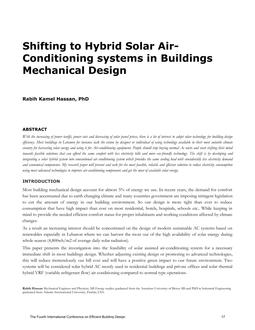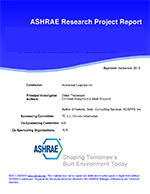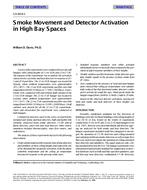Environmental conditions for a particular occupancy or process often dictate a specific humidity, a required range of relative humidity, or certain limiting maximum or minimum values. Human comfort, prevention and treatment of disease, electronic equipment, material storage, process control, static electricity control, laboratories, and sound transmission enhancement are applications where controlled humidity is desirable and possibly required. there are many methods available to achieve this condition, with the major technologies being rigid media (direct evaporation), direct water sprays, atomisation and steam injection, or different variations of these. Rigid media humidification has the potential to be the least expensive with regard to investment and operation. However, the unwarranted stigma associated with rigid media, or “swamp cooler,” has inhibited the technical community from taking proper advantage of this economical technology. With the recent attention given to indoor air quality, rigid media humidification has come to the forefront of the various technologies available due to its air-washing capabilities that can wholly or partially remove gaseous contaminants, aromas, and particulates. The other major technologies have little or no effect on one or more of these contaminants and can even be responsible for adding unwanted contaminants, such as dust or minerals or even chemicals contained in the water, into the space.
Units: I-P
KEYWORDS: year 1997, Humidification, rigid, direct humidifiers, air quality, indoor, performance, air washers, adiabatic, air conditioning, variable volume air conditioning, comparing, costs, ecnomics, measuring
Citation: Symposium, ASHRAE Transactions, Vol.103, Part 2, Boston 1997
Product Details
- Published:
- 1997
- Number of Pages:
- 8
- File Size:
- 1 file , 880 KB
- Product Code(s):
- D-16727


